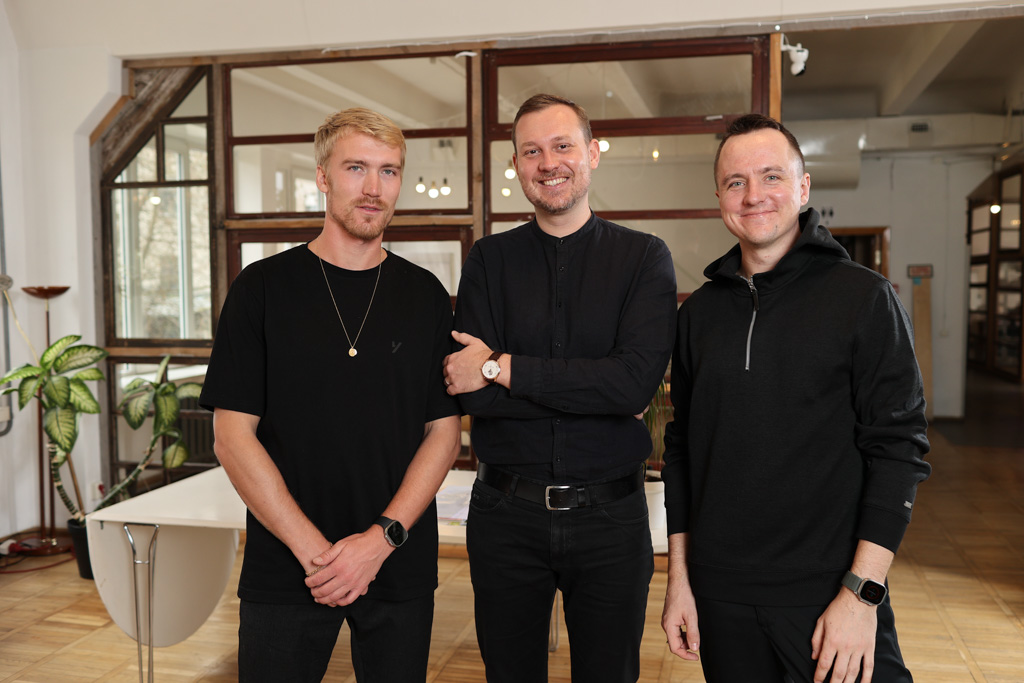Revolutionizing Product Engineering with AI: Introducing Trace.Space
In today’s fast-paced industrial landscape, the demand for precision in product engineering has never been higher. Engineers are now leveraging highly accurate digital simulations to craft prototypes that mirror real-world performance. While established software giants like IBM and Dassault have long dominated this space, a wave of innovative startups is emerging to shake things up—thanks to the power of generative AI.
One standout player in this burgeoning field is Trace.Space, a cutting-edge platform hailing from Riga, Latvia. Designed specifically for engineers, Trace.Space aims to streamline the development of complex industrial products, ranging from electric vehicles and satellites to medical devices and semiconductors.
A Leap Towards Efficiency
The pressure on Western manufacturers is mounting as they strive to keep pace with their swift Asian competitors. To this end, companies are racing to develop robust AI-driven platforms that accelerate product development. Recent entrants like Luminary and Dessia Technologies are also making strides in automating engineering processes with AI, pointing to a trend that’s reshaping the industry.
Trace.Space focuses on integrating a cloud-based model that enables seamless collaboration among manufacturers and suppliers on shared product requirements. This modern approach stands in stark contrast to traditional solutions that often rely on cumbersome on-premise installations.
A Vision from the Ground Up
Co-founder and CEO Janis Vavere shared insights with TechCrunch about the challenges faced by industries like automotive, medical, and aerospace. "Every company building complex regulated products is grappling with increasing design complexities. Legacy tools simply can’t keep up; IBM’s tools were created in the 1980s and operate as desktop clients that need installation on every computer," he explained.
Drawing from his experience at Jama Software, Vavere recognized a critical gap in the market for a cloud-based, AI-driven approach. “It’s the perfect moment to fuse modern software architectures and user interfaces with AI,” he noted, emphasizing that companies are eager for solutions that align with contemporary needs.
Vavere highlights that Trace.Space is much more than just an "AI wrapper." The platform employs sophisticated AI models like Llama alongside deterministic AI libraries and aspects of OpenAI’s large language models (LLMs) to drive its functionality.
The Team Behind the Innovation
The founding team of Trace.Space boasts a wealth of experience. Vavere previously led sales at Jama Software and has also made waves at translation management software firm Lokalise. His co-founders, Mikus Krams and Karlis Broders, bring valuable perspectives from their backgrounds in operations and large-scale project implementations, respectively.
Funding Success and Future Prospects
With a recent seed funding round raising $4 million, Trace.Space has garnered support from Cherry Ventures, along with the Riga-based Outlast Fund and other investors, including Nebular, Fiedler, and Change Ventures. This financial boost positions Trace.Space to further refine its platform and expand its reach within the manufacturing sector.
Conclusion
Trace.Space is at the forefront of a significant shift in product engineering, harnessing the transformative capabilities of AI to meet the challenges of complex industrial design. As this innovative platform gains traction, it exemplifies the potential of modern engineering tools to enhance collaboration and efficiency in an increasingly competitive landscape.
The AI Buzz Hub team is excited to see where these breakthroughs take us. Want to stay in the loop on all things AI? Subscribe to our newsletter or share this article with your fellow enthusiasts.




